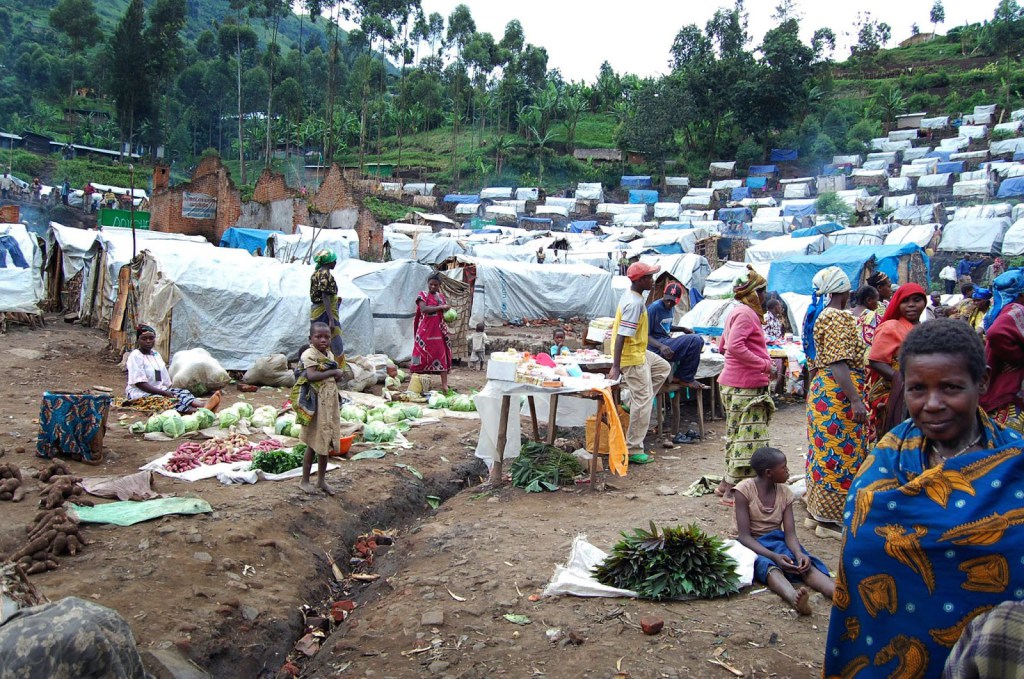
A comprehensive roadmap stating the challenges faced by displaced persons, solution to those challenges, implementation, activities with timeline, parties involved and their roles among others must be developed. The roadmap should also cover short and long term resettlement plans.
“It is pertinent to note that it costs more to keep IDPs in camps than it takes to resettle them.”
“Collating accurate data is primal to resettling IDPs.”
“The issue of displacement must not be treated politically; it calls for an urgent holistic approach.”
“Lack of reliable data has created a distorted picture of areas where interventions are needed.”
In the last five years, figures of displaced persons in Nigeria have grown exponentially. Currently, even with over two million internally displaced persons living in camps across Nigeria, the full impact of displacement is still essentially unclear. The displacement crisis in Nigeria is peculiar among others in the world, because it is only one among other major crises Nigeria is battling with concurrently. Following the yardstick of Fund for Peace, Nigeria remains a ‘fragile state,’ with massive displacement of people, severe humanitarian emergencies, widespread vengeance-seeking groups, severe economic decline and the deterioration of public services.
Faced with tough economic challenges, deep rooted corruption across board, insecurity and political instability among others, the displacement crisis in Nigeria has become wider, complex and more difficult to resolve. Asides the fact that some displaced persons’ camps are not recognised by the government, the recognised IDP camps suffer inordinate problems such as insecurity, hunger, malnutrition, poor healthcare, the lack of access to quality education etc. On insecurity, a number of suicide bombing attacks have been recorded in IDP camps in Borno State. On hunger and malnutrition, the recent report of “Doctors Without Borders” shows that thousands of displaced persons in Nigeria have died of hunger, while many others are still faced with chronic hunger and malnutrition.
The unresolved displacement crisis in Nigeria is raising concerns in the society, as displaced persons continue to live in frustration; this could lead to other presently unforeseen national challenges. Frankly, displaced persons are vulnerable to violence and crime. Their vulnerability poses a threat to the Nigerian society, and as such should be addressed quickly. Across the globe today, the efforts of governments, the United Nations, African Union and other international organisations, experts from various NGOs and the academia, on refugees and internally displaced persons are focusing on their rehabilitation. Rehabilitation in Nigeria has been marred by the following factors:
Lack of comprehensive data: There is a continuous shortage of reliable data on IDPs in Nigeria. This has created a distorted picture of areas where interventions are needed. Various organisations have presented different figures and statistics of displaced persons, considering the fact that an official of the National Emergency Management Agency in an interview with Daily Trust newspaper acknowledged that “unofficial” camps exist around the country, gathering accurate data of displaced persons hence remains a task.
Policy deficiencies: Currently, there are no policies that create enabling structures for the rehabilitation of displaced persons. Many conventions and international treaties ratified by Nigeria, like the Kampala Convention are yet to be domesticated in the country.
…the government should intensify the fight against corrupt officials in order to ensure transparency and accountability in the rehabilitation and resettlement process of displaced persons. The National Assembly should provide legislative backing that agrees with the effort of the Federal Government, NGOs and international organisations in rehabilitating displaced persons.
Lack of a comprehensive roadmap: Various national and international organisations have been responding to the immediate needs of displaced persons in Nigeria, however it is unclear if they have resettlement plans for them. Millions of persons displaced by Boko Haram have stayed in camps for at least two years, and many of them yearn for resettlement. So far, there seems to be no comprehensive roadmap to resettle these people. Significant challenges in the area of coordination, shelter, livelihoods, among others, are issues confronting displaced persons with no definite roadmap/document for their resettlement.
Corruption: In recent months, there have been constant complaints about the diversion of IDP funds by corrupt officials; this has resulted in hunger, starvation and death of children and women in displaced camps. In response to this, the Federal Government, the Nigerian Senate and the Economic Financial Crime Commission have vowed to probe corruption in IDP camps. Aside complaints about the diversion of funds, some branded relief items donated to IDPs by International Organisations are being spotted for sale in supermarkets and stores nationwide.
Important steps must be taken in overcoming these challenges. The issue of displacement must not be treated politically; it calls for an urgent holistic approach. It is pertinent to note that it costs the Nigerian government more to keep IDPs in camp than it takes to resettle them. In spurring actions for resettlement, the following must be done:
Collate Data: In April 2016, the Nigerian government announced it was gathering data for the settlement of displaced persons; it is unclear if the data have been gathered. Academics, researchers, journalists, international and national organisations should be engaged by the Federal Government in collating data. Collating accurate data is primal to resettling IDPs. Thus, the task must be taken seriously by the government.
Roadmap: A comprehensive roadmap stating the challenges faced by displaced persons, solution to those challenges, implementation, activities with timeline, parties involved and their roles among others must be developed. The roadmap should also cover short and long term resettlement plans.
In addition, the government should intensify the fight against corrupt officials in order to ensure transparency and accountability in the rehabilitation and resettlement process of displaced persons. The National Assembly should provide legislative backing that agrees with the effort of the Federal Government, NGOs and international organisations in rehabilitating displaced persons.
Olawale Rotimi Opeyemi, a journalist, writes from Abuja.
END

Be the first to comment